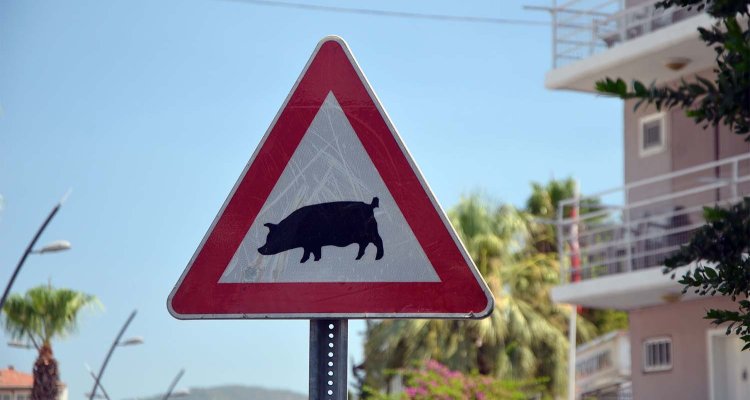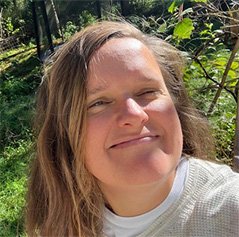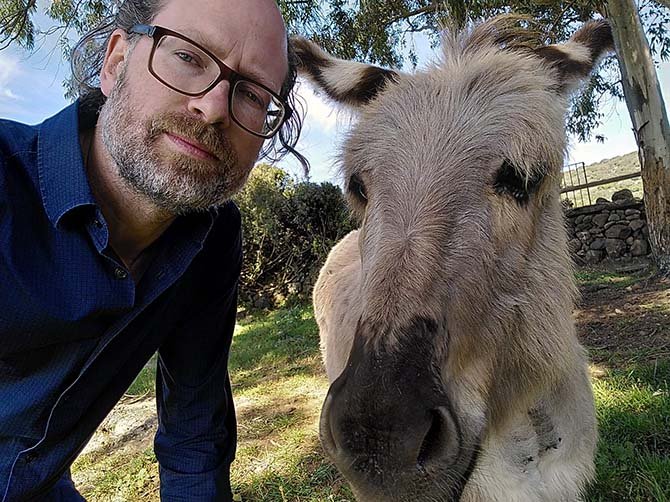
Event
SG - Ecocentric Thinking in Practice
Tonight, we’ll explore the practical implications of a more-than-human ecocentric perspective through two intriguing examples.
About Ecocentric Thinking in Practice
Tonight, we’ll explore the practical implications of a more-than-human ecocentric perspective through two intriguing examples: ecosystem restoration by means of rewilding (ARK Rewilding Nederland) and the use of AI to foster urban cohabitation between birds and humans (Sue van Geijn). Researcher Clemens Driessen will respond, drawing on his attempts to involve animals. However different in their approach, both examples involve human-initiated design. What challenges do these initiatives run into when aiming for a multispecies approach? How difficult is it to translate ideals into practice, and where do tensions arise? Join us to discuss the insights we can glean from these inspiring cases!
About series Rethinking Human-Nature Relationships
In recent years, there has been a growing interest in the role and agency of non-human actors, including other beings, ecosystems and landscapes. Initiatives that advocate for a more-than-human perspective gain traction, embracing post-anthropocentric thinking, as well as concepts like non-human rights and multispecies justice. These efforts challenge traditional views of nature and aim to empower non-human natural entities, such as farmed animals, coral reefs, and rivers.
In this series, we’ll explore this paradigm shift and how it invites us to rethink humanity’s place in the natural world. What explains the rising attention for the ‘more-than-human’, and what does it mean to empower non-human nature in practice? We’ll look at real initiatives that strive to better represent non-humans. To what extent do they contribute to meaningful change and what can we learn from them?
About Judith Slagt

After graduating in Forest & Nature Conservation at Wageningen University & Research and Spirituality studies at Radboud University, Judith is now working at ARK Rewilding the Netherlands. Her job at ARK involves a lot of different things: ranging from the reintroduction of the European bison to talking with the Ministry of LVVN on regulations, and from being coordinator of several ARK teams to giving lectures. In addition to her work at ARK, Judith is an external PhD student at Wageningen University & Research. In her PhD research she looks at the social side of rewilding. So she is both a rewilding practitioner and rewilding researcher, which she considers a super interesting combination.
About Sue van Geijn

Sue van Geijn is a design-researcher and philosopher at the Rotterdam University of Applied Sciences. She works as a lecturer-researcher on topics related to role of technology in the relationship between people and animals in the city.She does this as part of research group Wijk als Biotoop (WAB), where they conduct participatory co-design research to increase the action perspective of residents on the topic of biodiversity, and in her personal project on investigating multispecies AI applications. She holds a Master in Philosophy of Science, Technology & Society (UTwente), and conducted her thesis on the urban as an ecosystem from an environmental ethics perspective.
About Clemens Driessen
Clemens Driessen works as a more-than-human geographer at Wageningen University & Research. He is interested in the ways in which animals, plants, humans, and other organisms shape each other's lives in contemporary and historical landscapes. In collaboration with designers, conservationists, farmers, scientists, and the occasional willing non-human, he looks for playful encounters in spaces optimised for functionality and efficiency. His research interests include animal politics. What does it entail when we take non-human organisms seriously as political beings that somehow communicate with us? To what extent could material design – from landscapes to devices – play a role in learning to find new ways of living with wild and less wild others?
